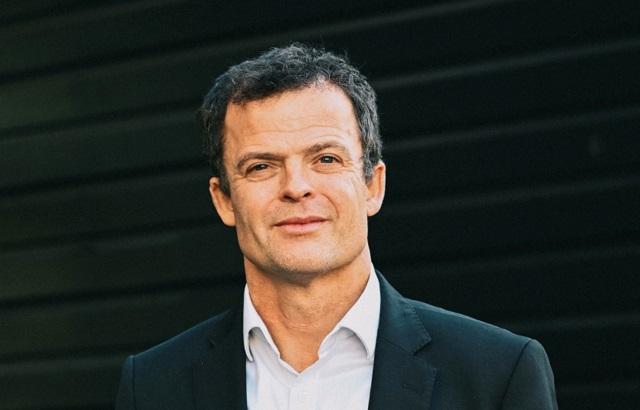- Center on Health Equity & Access
- Clinical
- Health Care Cost
- Health Care Delivery
- Insurance
- Policy
- Technology
- Value-Based Care
Powles Highlights “Transformative” Benefit of EV Plus Pembro While Sharing Long-Term Data for EV-302
The lead investigator for EV-302 said not long ago, survival of 12 to 14 months in this type of bladder cancer was considered an achievement; in this study, median overall survival was 34 months after treatment with enfortumab vedotin (EV) and pembrolizumab (pembro).
Combining the antibody-drug conjugate (ADC) enfortumab vedotin (EV) with the immunotherapy pembrolizumab offers patients with advanced urothelial carcinoma (aUC) “transformative” benefits over chemotherapy, including a 74% likelihood of maintaining a confirmed complete response at 2 years,1 the lead investigator of the EV-302 trial (NCT04223856) told those gathered Friday for the American Society of Clinical Oncology Genitourinary Cancers Symposium (ASCO GU).
Thomas Powles, MD, PhD | Image credit: Barts Cancer Center

In a rapid oral abstract session, Thomas Powles, MD, PhD, of Barts Cancer Center in London, added new details to results announced ahead of ASCO GU, which runs February 13 to 15, 2025, in San Francisco, California. Long-term data released earlier this week from EV-302 showed patients newly diagnosed with aUC cut their risk of death by 49% taking the combination compared with those taking chemotherapy, which had been the standard of care for these patients.2
Powles shared an additional year’s worth of data, for a median follow-up of 2.5 years, on top of results that had already brought a pair of accelerated approvals for the EV plus pembrolizumab combination in the firstline setting: the first came in April 2023 for patients not eligible for cisplatin; the second came in December 2023, about 5 months ahead of the FDA's deadline, for all newly diagnosed patients regardless of cisplatin eligibility. Enfortumab vedotin is marketed as Padcev (Astellas), and pembrolizumab is marketed as Keytruda (Merck).
The combination, Powles said, “has doubled median progression-free survival and overall survival in frontline metastatic disease at high response rates, resulting in transformative care across the world.”
Updated data at 29.1 months show the following1:
- 54 patients (12%) remain on treatment in the combination arm, and no patients remain on treatment in the chemotherapy arm
- 218 patients (49%) in the combination arm and 131 patients in the chemotherapy arm (30%) remained in the study.
- Median progression-free survival (PFS) is 12.5 months in the combination arm (95% CI, 10.5-16.6) vs 6.3 (95% CI, 6.2-6.5), P < .00001.
- Median overall survival (OS) is 33.8 months in the combination arm (95% CI, 26.1-39.3) vs 15.9 months (13.6-18.3) in the chemotherapy arm.
He highlighted the OS curves, noting that “they go apart and stay apart,” remaining stable at the 2-year mark. Powles said he recalls when he began working with patients with aUC, survival of 12 to 14 months was an achievement; with the EV and pembrolizumab regimen, overall survival is now nearly 34 months.
“A big difference has been made,” he said.
Powles highlighted that 74.3% maintained a response at the 2-year mark. “But we also showed that 30% of patients had a complete response, which again, was unprecedented in this setting,” he said.
The OS results showed good overall results among subgroups; of note, 22.6% of the patients in the combination arm evaluated for OS were non-White, and these patients had better median OS (36.3 months) than the White patients (26.1 months). Patients from Europe and North America accounted for 62.2% of the population in the combination arm.
Powles reviewed adverse events and described attention to AEs as “a core component of this work.” He said there were no new safety signals; 57% of patients in the combination arm experienced a grade 3 or higher event in the final year of follow-up, with most of these events being diarrhea or rash.
Given the durable responses and how long some patients are on therapy, Powles was asked: Is it time to examine the optimal time to remove patients from treatment?
He agreed this is the right question to ask, but a tough one to answer. For many aUC patients, the prognosis had been quite grim before the EV and pembrolizumab combination was available.
“The patients I see don’t want to come off therapy,” he said. “My gut feeling on this is 5 years is too long; I think we will agree on that. A year or 6 months is too short for me,” Powles said. “I think we do need to get together with people to start addressing the issue.”
Reference
- Powles T, van der Heijden MS, Loriot Y, et al. EV-302: Updated analysis from the phase 3 global study of enfortumab vedotin in combination with pembrolizumab (EV+P) vs chemotherapy (chemo) in previously untreated locally advanced or metastatic urothelial carcinoma. J Clin Oncol. 2025;43(suppl 5):Abstract 664. doi:10.1200/JCO.2025.43.5_suppl.664
- Pfizer and Astellas' Padcev (enfortumab vedotin-ejfv) plus Keytruda (pembrolizumab) shows long-term efficacy in first-line treatment of locally advanced or metastatic urothelial cancer (la/mUC). Astellas. News release. February 10, 2025. Accessed February 14, 2025. https://newsroom.astellas.us/2025-02-10-Pfizer-and-Astellas-PADCEV-R-enfortumab-vedotin-ejfv-plus-KEYTRUDA-R-pembrolizumab-Shows-Long-Term-Efficacy-in-First-Line-Treatment-of-Locally-Advanced-or-Metastatic-Urothelial-Cancer-la-mUC
Exploring Racial, Ethnic Disparities in Cancer Care Prior Authorization Decisions
October 24th 2024On this episode of Managed Care Cast, we're talking with the author of a study published in the October 2024 issue of The American Journal of Managed Care® that explored prior authorization decisions in cancer care by race and ethnicity for commercially insured patients.
Listen
